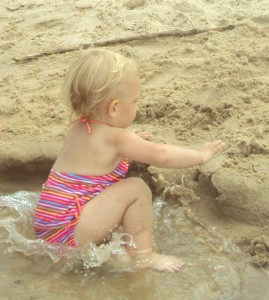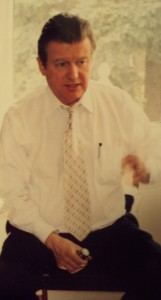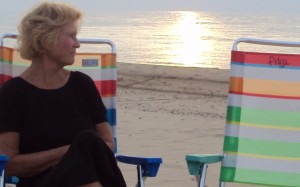When a child is learning to walk, she falls down repeatedly. As she masters a toddle, her falls become less frequent, although it doesn’t take much to throw her to the ground. But she hops up without damage or discouragement 99% of the time.
An older school child doesn’t fall as often but doesn’t pop up quite as readily, either. There may be tears or a need for a cartoon-enhanced bandage, but she heals up quickly and soon forgets her tumble.
By the time we’re adults, falls are nearly non-existent. We’ve become good on our feet and sure of our steps. If we do go down, it’s quite a crash, and getting up again is awkward at best. Often we feel the effects 24 hours later when muscles stiffen and bruises appear.
A year ago today, Nate fell. Because his cancer diagnosis was new, we weren’t sure what had caused him to wobble and lose his balance without warning. I heard the collapse from the next room, but Nelson and Klaus were mere feet away and sprung to his aid. As they lifted him from the floor, Nate dismissed it as nothing, saying he tripped over his own feet.
But he had wacked his head on a door frame as he fell, giving himself a plump goose egg. The next day I reported the mishap to Dr. Abrams, who disagreed with Nate’s comment that it “was nothing.”
“With his body already working overtime to fight cancer,” he said, “it doesn’t need a brain bleed.”
Despite Nate’s frustration with another test, a better-safe-than-sorry approach seemed wise, and he willingly endured the scan. Thankfully, he’d been right. It was nothing, although I thought the bruise on his head ought to count for something.
When it was all over, the fall had traumatized the rest of us far more than it had Nate. To witness him going down was to feel sudden shock. Yet we all decided not to blow it up into more than it was, hoping he wouldn’t fall again. Sadly, he did, two more times.
I’ll never forget how Nate consistently minimized his misery during those horrendous days. Rather than complain, which we would have understood, he would bear his pain in quietness. When I think about it, it makes me wince.
Complaining comes easily for most of us, not necessarily about physical pain but about things much less worthy. Nate’s example puts me to shame. His acceptance of the way his life changed toward the negative was remarkable, and I’m trying to emulate it.
God doesn’t like whining. Scripture refers to it as murmuring or grumbling. Although we think complaining will make us feel better, it only spreads our misery to others. A better approach is to talk to the Lord about it, knowing he’ll set us straight and teach us how to combat whining with gratitude.
Nate’s falls were physical, but all of us can fall without even hitting the ground… by falling into sin. God watches to see how we’ll respond to trouble. Will we make things worse by whining? Or will we bear up under our difficulties in quietness.
Although Nate did fall, he didn’t fall down on the job. And I’m really proud of him for that.
“Now the people complained about their hardships in the hearing of the Lord, and when he heard them, his anger was aroused. (Numbers 11:1a)




